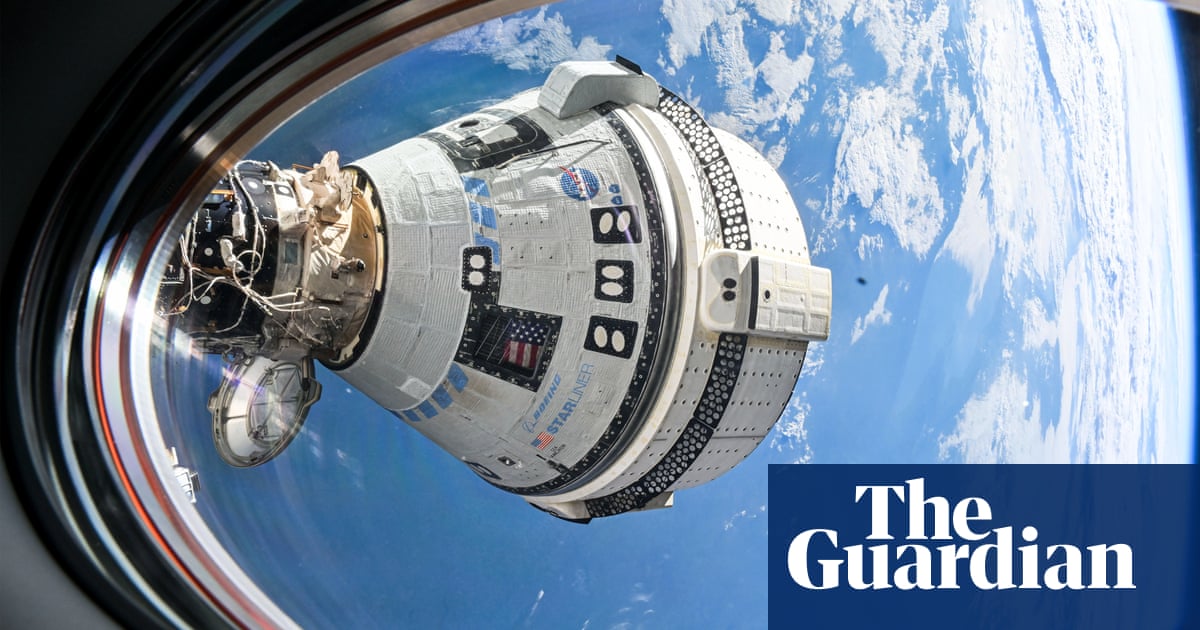
NASA is expected to announce early Saturday whether American astronauts stuck on the International Space Station (ISS) can return home on the crippled Boeing Starliner spacecraft that took them there or will need to wait for SpaceX’s craft — another embarrassment for the struggling rival aerospace company.
Then next week, SpaceX plans to launch one of its riskiest missions yet, attempting the first-ever private spacewalk, using innovative thin spacesuits and a cabin without an air chamber.
“NASA is expected to make its decision on whether to return Starliner to Earth with astronauts on board on Saturday, August 24, at the conclusion of an agency-wide review,” the space agency said in a statement.
Starliner launched its first two astronauts into space in June as a crucial test before it could win NASA approval for routine flights. But the mission, which was supposed to take eight days and dock with the International Space Station, was delayed for months after the capsule leaked fuel and some of its engines failed.
The statement said NASA Administrator Bill Nelson will attend the agency-wide review. Boeing has sought for months to allay concerns about Starliner’s problems with new test data that the company claims proves the spacecraft is safe for astronauts.
NASA is weighing that data against its low appetite for risk on the mission, which is one of four Starliner flights since 2019 that have suffered accidents.
The agency has a backup plan to provide two seats on the upcoming SpaceX Crew Dragon mission that the Starliner crew — veteran NASA astronauts Suni Williams and Butch Wilmore — can use.
If this option is chosen, Wilmohr and Williams will not return to Earth until the end of that mission in February 2025, and Starliner will be returned to Earth empty in the meantime.
Boeing has struggled to develop Starliner and compete with SpaceX’s similar but more experienced Crew Dragon.
Boeing has lost $1.6 billion on its Starliner program, securities filings show. The U.S. jetliner maker has been struggling in recent years after crashes involving its 737 Max model and, in a newer version of that plane, a terrifying incident in January in which a door panel blew off mid-flight, an investigation is ongoing.
Boeing is under pressure from SpaceX, the startup founded by tech entrepreneur Elon Musk, who also founded Tesla, the maker of electric land vehicles, and now owns the social media platform X, formerly known as Twitter.
Billionaire entrepreneur Jared Isaacman will join a retired military fighter pilot and two SpaceX employees on Tuesday’s launch of a modified Crew Dragon spacecraft that will include a spacewalk.
After promoting the newsletter
The plan is for them to embark on a 20-minute spacewalk 434 miles (698 kilometers) into space two days later. So far, only government astronauts aboard the International Space Station, which orbits 250 miles above Earth, have attempted empty spacewalks.
SpaceX’s five-day mission, dubbed Polaris Dawn, will travel in an elliptical orbit, passing as close as 118 miles from Earth and as far as 870 miles away – the farthest any human has traveled since the end of the U.S. Apollo moon program in 1972.
The crew will wear thin spacesuits in a vehicle modified so that it can open its hatch into the vacuum of space — an unusual process that eliminates the need for an airlock.
“They’re pushing the boundaries in multiple ways. They’re going to go much higher, with a much more severe radiation environment than we’ve had since Apollo,” retired NASA astronaut Garrett Reisman told Reuters in an interview. Isaacman has funded the mission to the tune of about $100 million.
Isaacman will be joined by mission pilot Scott Poteet, a retired U.S. Air Force colonel, and SpaceX senior engineers Sarah Gillis and Anna Menon.
“There’s not much room for error,” Reisman said.

“Web maven. Infuriatingly humble beer geek. Bacon fanatic. Typical creator. Music expert.”





More Stories
Argentine Fossil Discovery Rewrites the Evolutionary Story of a Mysterious Dinosaur Group
SpaceX launches 23 Starlink satellites from Florida (video and photos)
A new 3D map reveals strange, glowing filaments surrounding the supernova